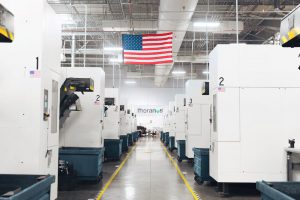Already bogged down under a series of lawsuits and federal investigations, medical startup Theranos just got hit with a new suit last week. This time Robertson Stephens co-founder Robert Colman is trying to recover his investments by saying the company misled investors about their technology while soliciting money.
The suit was filed in California and will be the first to seek class-action status. According to the Wall Street Journal, several hundred plaintiffs could be represented in the case.
If you haven’t already heard about Theranos, let’s recap it’s tumultuous fall from grace this year. Like any other Silicon Valley startup, Theranos promised it was going to change the world. But what makes this particular pitch stand out from the crowd is the enigmatic leader and rare female CEO Elizabeth Holmes.
In 2003, Holmes dropped out of Stanford to found the company at the age of 19. She promised Theranos had the technology to test for hundreds of diseases using just a single pinprick’s worth of blood. Even if the technology wasn’t actually there, Holmes’ story was compelling and she was able to get away with keeping a shroud of mystery around the operations to avoid much scrutiny.
Theranos secured more than $400 million in funding with an estimated value of $9 billion by 2014. Both Walgreens and Safeway invested in the company with plans to offer the revolutionary blood testing kit at their outlets. Plus, she stocked up her board of directors with political celebrities like Henry Kissinger and former secretary of state George Shultz. This move was odd but effective at drawing more media attention and credibility.
“The caliber of the board suggests that Theranos must have developed a transformative innovation, but other than Frist, who has not practiced medicine in many years, only Foege is a medical professional,” according to Business Insider.
Then in October 2015, the Wall Street Journal published a scathing article that exposed the blood testing kits didn’t work and that Theranos had been covering it up by mostly using competitor’s equipment. Theranos’s ball of lies has been unraveling slowly since. In April, federal regulators opened fraud investigations into the company. By May, Theranos voided two years’ worth of test results and issued tens of thousands of new reports. Walgreens terminated their relationship with Theranos and has since opened a lawsuit to recover its investment. In July, Holmes was barred from operating labs for 2 years by the Centers for Medicare and Medicaid Services
You do have to hand it to Holmes for trying to stay afloat through it all. In August, she attempted to pivot the company by introducing a new portable testing kit called miniLab. And come January 1st, she’s finally shelving the advisory board packed full of political strategists. It should be noted that James Mattis, a retired Marine general and President-elect Donald Trump’s pick for secretary of defense, will remain on the board of directors.
Theranos is by no means the only bad bet to pull the wool over investors’s eyes. But it does stand out as a particularly outsized one. And one thing it did better than other failed startups was hold up a mirror up to Silicon Valley and show us how desperate some investors can be in their search for the perfect unicorn with a backstory that hits all the right places. It seems even today, a lie can travel pretty far when it comes packaged inside a damn good Powerpoint pitch.











